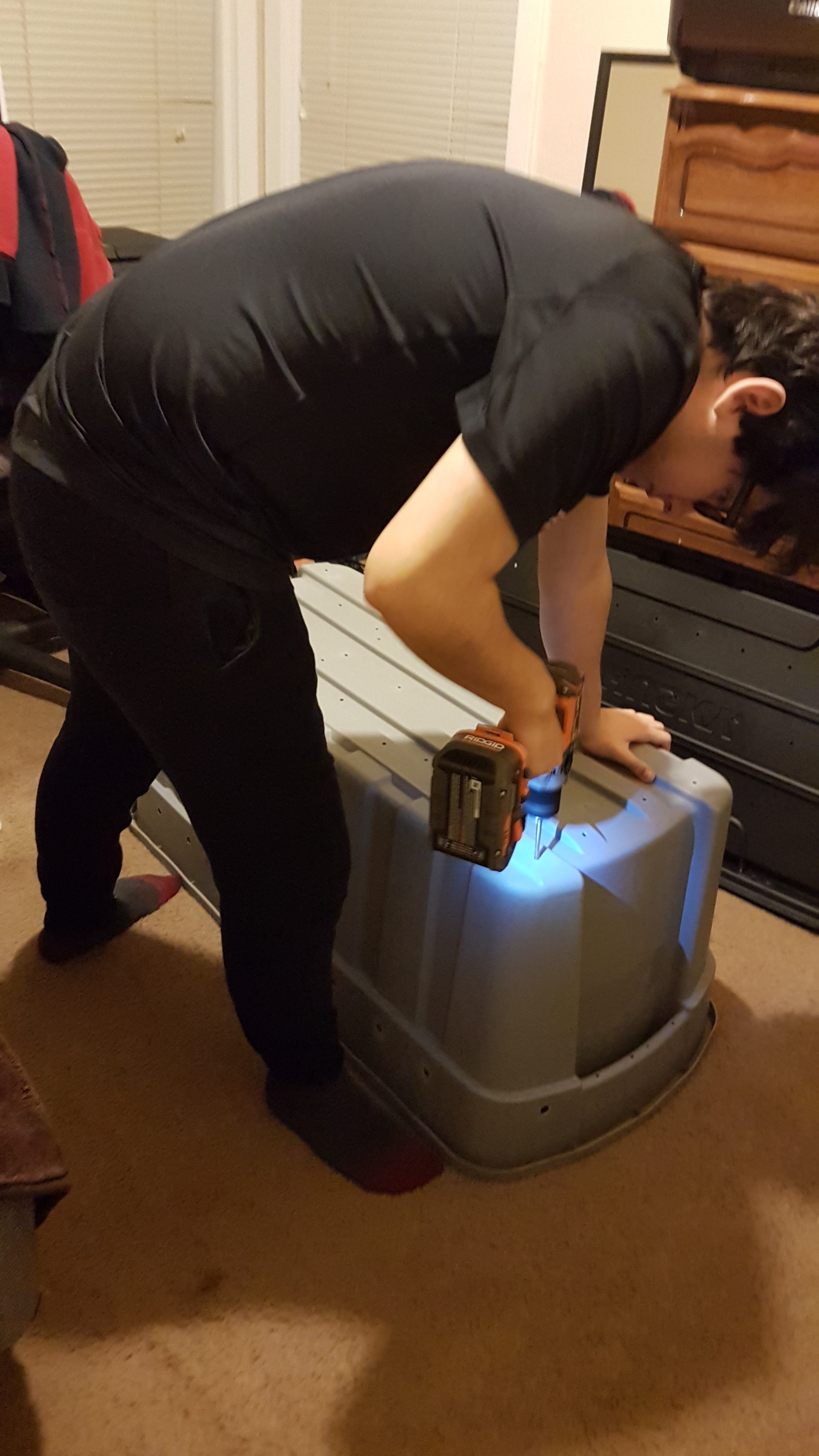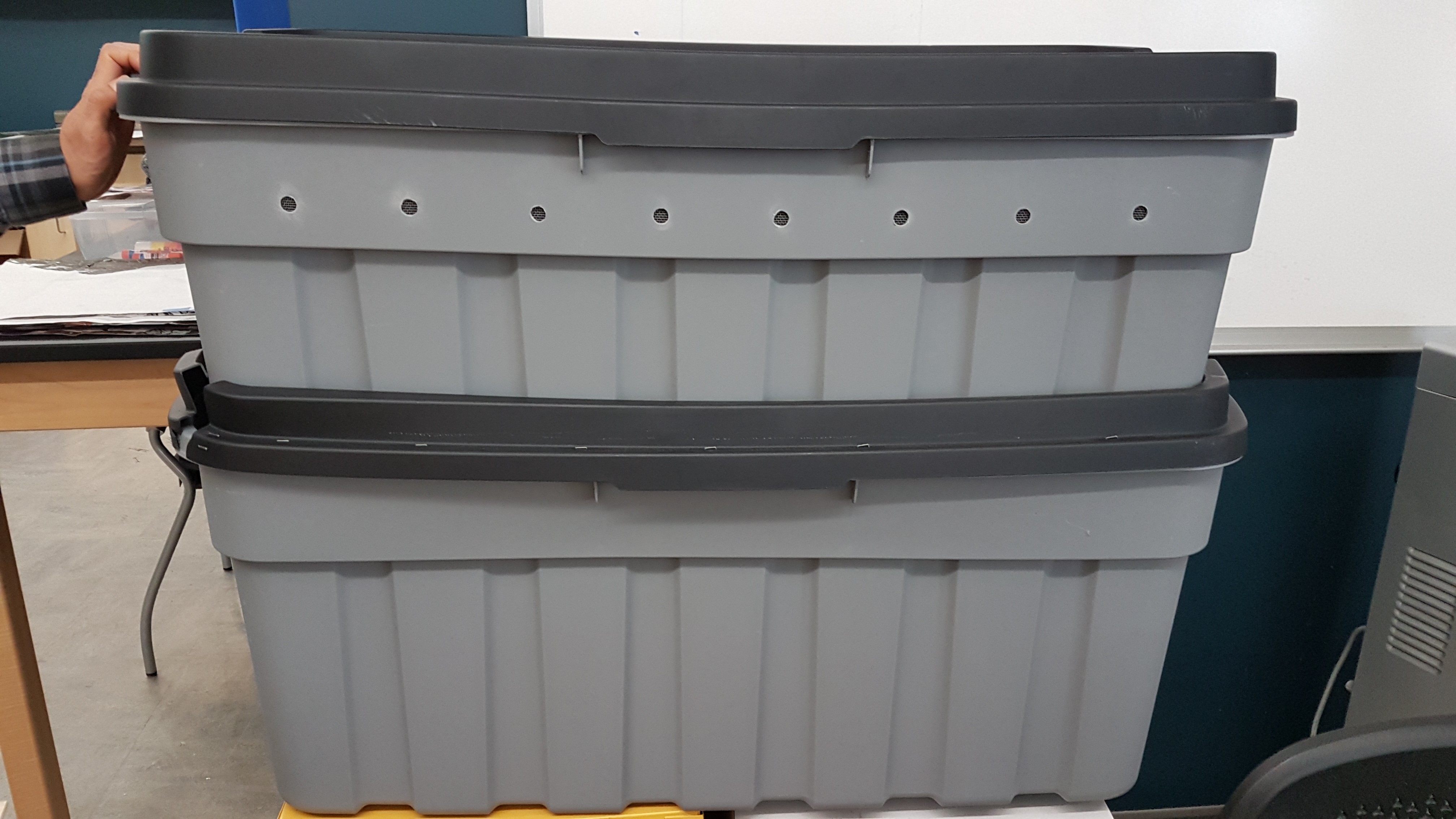 2019, Sacramento, California, USA
2019, Sacramento, California, USA
Kevin Alvarez-Vazquez, a student at the MET Sacramento, was concerned about the amount of food waste from his school that ends up in landfills. Food waste that decomposes in landfills releases methane, a greenhouse gas that is more potent than carbon dioxide. Kevin knew that traditional outdoor composting can convert food waste into nutrient rich soil, but he wanted to demonstrate an alternative that can be done indoors or outdoors, vermicomposting.
Kevin built a worm bin with special adjustments for indoor use, as he did not want extremities of weather to cause worms to die and needed maintenance to be an easy, regular part of the school day.

Kevin plans to educate advisory groups at his school and to create a flyer, with a “how to” diagram and materials list on one side and information about the benefits of vermicomposting on the other. Caring for Our Watersheds funding helped purchase materials and worms for the bin.